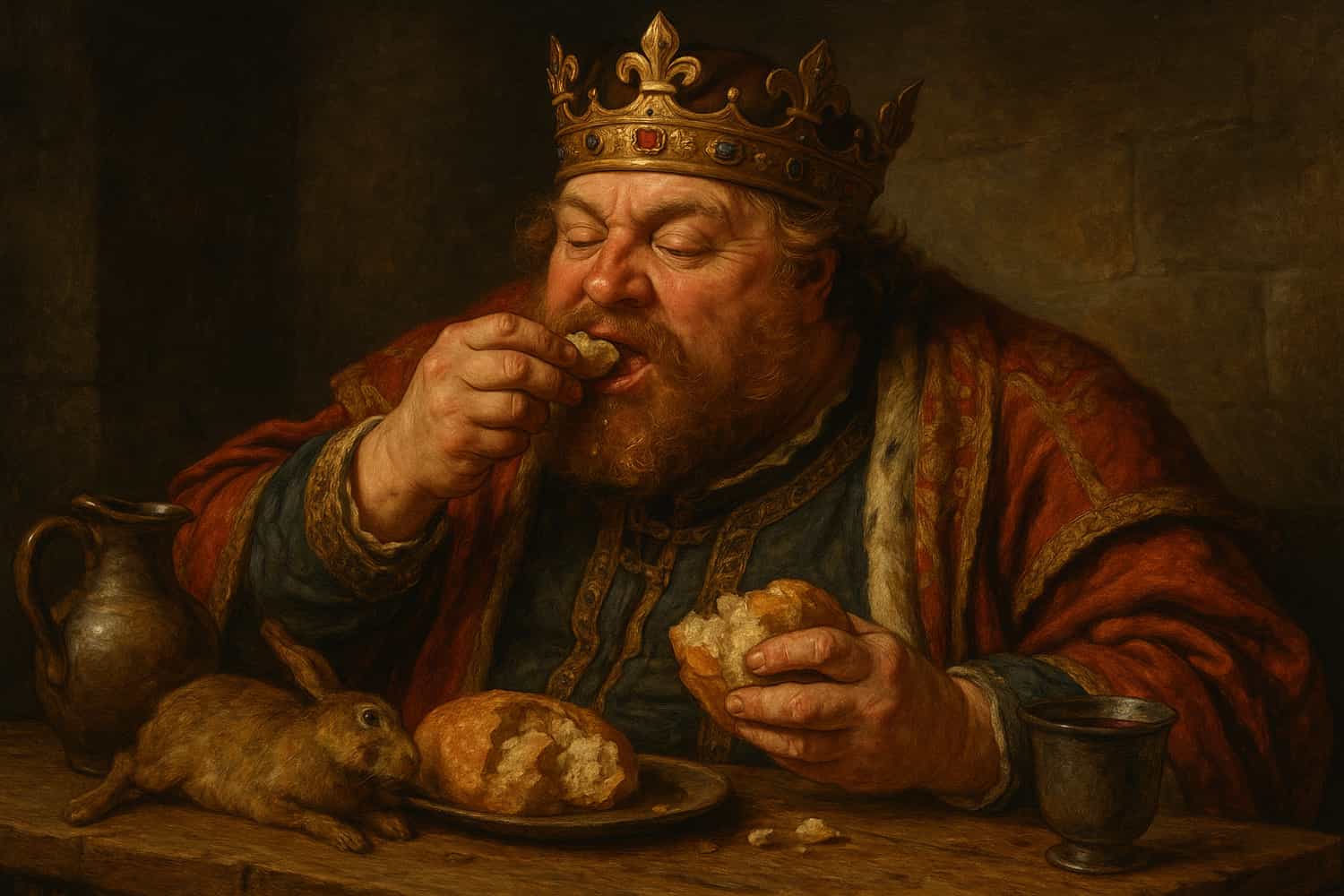Cambridge study of 2,000+ medieval skeletons reveals English kings ate mostly plant-based diets, not meat-heavy feasts. Royal banquets were rare ceremonies, daily meals were surprisingly modest.

Table of contents
Contrary to popular imagination—filled with images of overflowing banquet tables laden with game, roasted joints, and tankards of beer—the sovereigns and nobles of early medieval England had a surprisingly meat-poor diet. This revelation comes from a groundbreaking study conducted by the University of Cambridge and published by Cambridge University Press, which debunks centuries of historical and literary stereotypes.
The study: 2,023 skeletons analyzed, myth busted
The team of bioarchaeologists examined the remains of over 2,000 individuals who lived in England between the 5th and 11th centuries, comparing isotopic data (carbon and nitrogen) extracted from bones with burial context—such as grave goods and burial position—to identify social rank.
But it was the comparison between body archaeology and medieval written texts that produced the most shocking discovery: the supposed “royal diets” based on meat were ritual exceptions, not the daily rule.
Meat yes, but only on feast days
The famous royal provisioning lists, such as those contained in the laws of King Ine of Wessex, catalog abundant quantities of meat, fish, dairy, and alcohol. But researchers have demonstrated that these did not represent the court’s daily diet, but were reserved for ceremonial banquets, probably with political and symbolic significance.
“We must abandon the idea of the ‘king always at table with roast meat,'” explains bioarchaeologist Sam Leggett. The reality was much more sober: bread, grain soups, vegetables, legumes, enriched only occasionally with meat or cheese. The daily diet was surprisingly similar across social classes.
The truth about “rich man’s diseases”
Even pathologies typically associated with dietary excess, such as gout—historically called the “disease of kings”—find no confirmation in the analyzed remains. Skeletal analyses reveal no systematic consumption of animal proteins among nobles, not even among members of royal families. The myth crumbles: meat was not the nobility’s daily luxury, but a privilege reserved for celebrations.
A more “green” middle ages than we think
Another debunked myth concerns vegetables: despite medieval English texts rarely mentioning them in official menus, biochemical evidence reveals that fruits, vegetables, and grains were the foundation of daily nutrition, even for the wealthy. Their absence from documents would be linked to scribes’ disinterest in common food, considered unworthy of note.
Flexitarian kings before the term existed
In light of these results, researchers conclude that the kings and aristocracy of early medieval England were, in fact, “flexitarians.” The term—born from the fusion of flexible and vegetarian—describes those who follow a predominantly plant-based diet, but with occasional allowances for meat and animal products. Not by ethical choice, obviously, but due to necessity, agricultural availability, and cultural practices.
The image of the Middle Ages as an era of dietary excess and opulent banquets needs revision. Archaeology demonstrates that kings’ diets were much more similar to those of peasants than literature has led us to believe. A more “green,” more sober past, and surprisingly closer to modern dietary trends than one might imagine.
